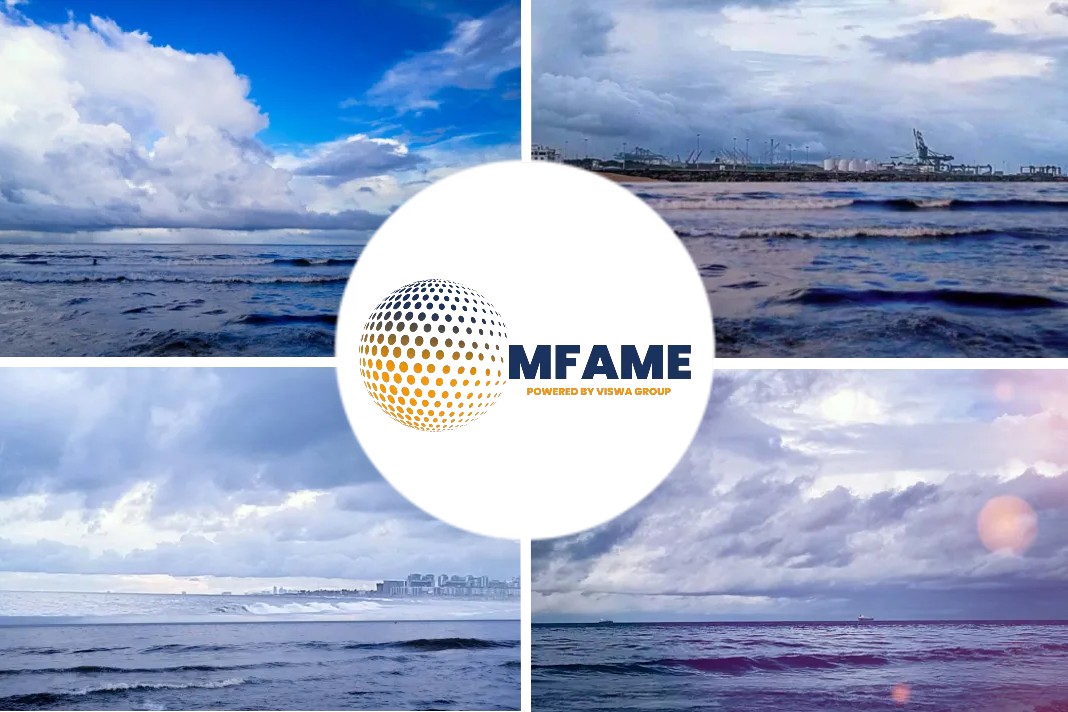The two ship masters on an Irish Ferries vessel that suffered major damage on its car decks during a storm disagreed over whether they should go ahead with a sailing between France and Ireland, says a report by the Marine Casualty Investigation Board.
The report reveals details of the disagreement, between the two senior officers on board the MV Epsilon, about whether they should proceed with the crossing between Cherbourg and Dublin, due to the threat posed by Storm Imogen. The incident occurred on February 7, 2016.
What happened?
The senior master, who had overall command of the vessel, was not unduly concerned by the adverse weather forecast, as he expected the ship would get ahead of the worst of the weather and be in the shelter of the Irish coast before seas exceeding the agreed limits of eight metres in height were expected. He told MCIB inspectors he had never been put under any pressure by Irish Ferries to proceed with a sailing.
The report also recorded that a night-duty master, who expressed his view that the weather conditions were not suitable for the scheduled sailing and that the crossing should be delayed until the storm had passed, was overruled by the senior master. The report said there were no weather limits, either statutory or imposed by Irish Ferries, on MV Epsilon.
Worsened Weather; Slowed Vessel
On the following day, the ship, which has 138 passengers and 54 crew on board, took shelter in Barnstaple Bay, off the Devon coast, after rounding Land’s End, due to worsening weather conditions. The ship’s master believed it was unsafe to anchor and, instead, decided to “slow steam” back and forth across the bay, until weather conditions improved.
Damages and Injuries
During one turn, when there were force-10 gales, the vessel rolled heavily at an angle of around 33º. Vehicles and freight broke loose from their restraints. 59 cars, vans, and caravans, as well as 40 freight units, were damaged. Cargo from some of the units also spilt and was damaged. There was also damage to the ship’s bulkheads on two cargo decks and to one of its lifeboats. In addition, 10 passengers and two crew members suffered injuries.
Decision Debates and Protocols
After the storm abated, the vessel resumed its sailing, arriving in Dublin shortly before noon on February 9, 2016. The MCIB said the situation raised an issue about how two masters on a ship, in such circumstances, make a decision on sailing. MV Epsilon effectively had two crews, with each operating a 12-hour shift. The MCIB said it appeared the change of command was not carried out in accordance with the required procedures.
The report said the failure of vehicle securing points, during the roll of the vessel, contributed to the scale of the damage and recommended that appropriate securing arrangements be put in place. The MCIB said MV Epsilon used a procedure for change of command which was acceptable for short voyages, such as the Dublin-Holyhead route on which the vessel operated most of the week, but was not to be used for longer voyages.
Lucidity Needed
It recommended that Irish Ferries should clarify the roles of the senior master and duty master to ensure the effective safety-management of the ship, as well as review the training and system requirements for weather forecasting.
Did you subscribe for our daily newsletter?
It’s Free! Click here to Subscribe!
Source: Irish Examiner
















